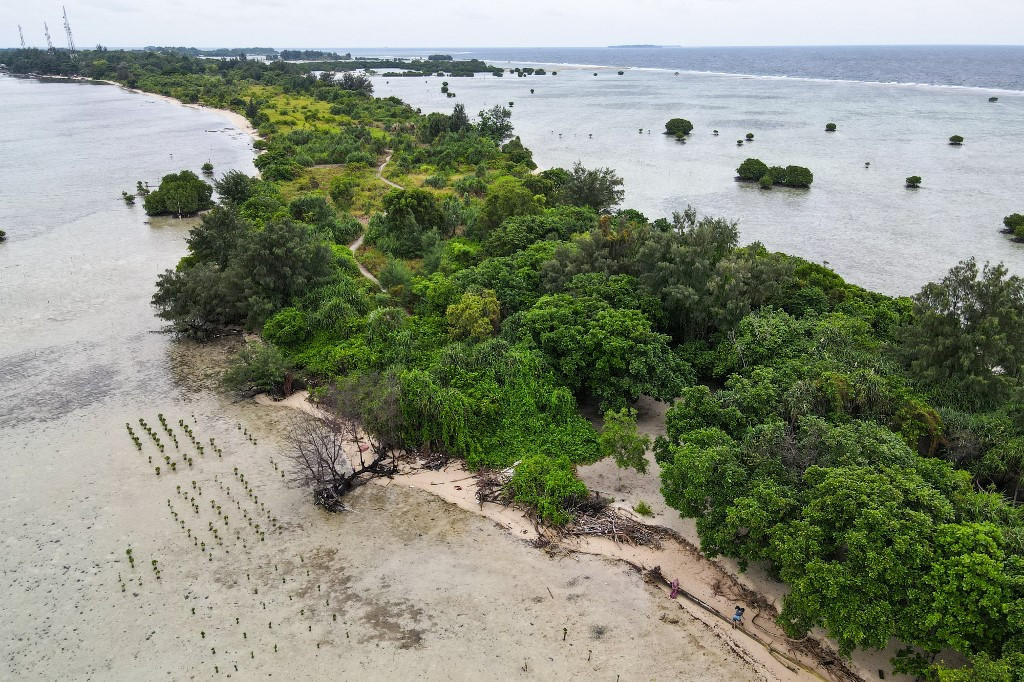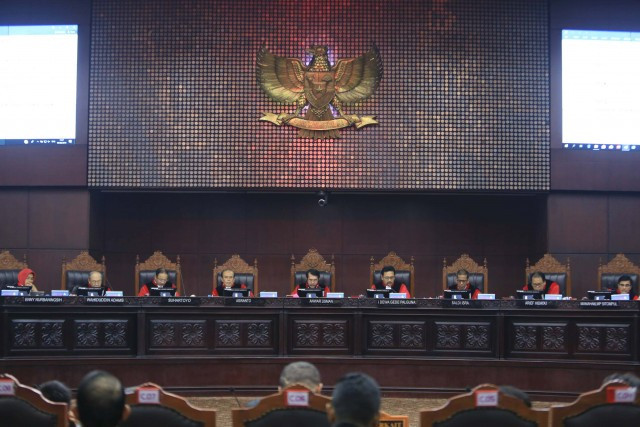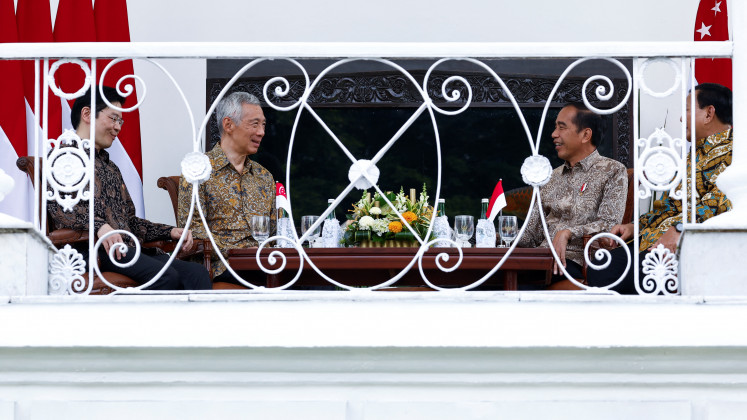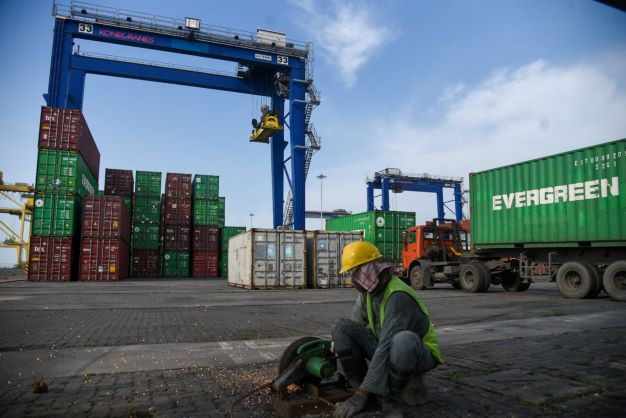The open ESG flank
Failure to meet environmental, social and governance (ESG) expectations – especially the E part – creates dangerous vulnerability both at the corporate and the macroeconomic level, and hence a risk to Indonesia’s industrial development.
Change Size
 Mangrove trees planted by the local community as part of an environmental, social and governance (ESG) initiative are seen on Pari island in the Thousand Islands cluster on Feb. 23, 2023. The mangroves have been planted in an attempt to slow erosion caused by rising sea levels. (AFP/Bay Ismoyo)
Mangrove trees planted by the local community as part of an environmental, social and governance (ESG) initiative are seen on Pari island in the Thousand Islands cluster on Feb. 23, 2023. The mangroves have been planted in an attempt to slow erosion caused by rising sea levels. (AFP/Bay Ismoyo)
H
yundai Motor Company’s recent withdrawal from an agreement with PT Adaro Minerals Indonesia (Adaro) following calls from climate activists should give us pause.
In late March, the South Korean carmaker confirmed its decision not to renew a memorandum of understanding (MoU) for the supply of aluminum. The company, apparently in response to pressure from a campaign driven by K-pop fans, stressed its commitment to responsible and sustainable sourcing of materials.
The issue with the Indonesian aluminum, reportedly, is the fact that its energy-intensive production would rely entirely on coal power in the initial phase, despite Adaro having announced that a 1.3-gigawatt hydropower plant would eventually support the smelter’s operation.
Without knowing whether Hyundai’s alternative sources of aluminum will be any greener, we cannot approve or disapprove of the company’s decision. It is doubtful whether environmental campaigns amplified by social media always adequately assess a company’s overall ecological footprint.
Nevertheless, there is a lesson to be drawn from this:
No matter how much an industrial company may comply with prevailing environmental regulations, and even if it has carbon neutrality plans in the pipeline, as long as the electricity fueling its facilities comes from coal, its entire operation will be tainted, with a stain left on its products.
This may not always be fair, because the energy transition takes time, but it is a fact that business leaders must take into account. Feeling the mounting pressure, industry players in Indonesia have urged the government to improve access to renewable energy.
Environmental, social and governance (ESG) standards are no longer boxes a company can tick to spruce up its public image. They are not optional add-ons to a company’s performance.
Instead, failure to meet ESG expectations – especially the E part – creates dangerous vulnerability both at the corporate and the macroeconomic level, hence a risk to Indonesia’s industrial development.
Scrutiny in this area will only grow, which is why prospective investors must study a project’s ESG credentials, especially for large foreign direct investment and export-oriented production.
To be sure, a wholehearted embrace of ESG principles, rather than just scoring some PR brownie points, does not come cheap. On the bright side, the adaptation costs will be offset to some extent, if not entirely, by additional financing options, while funding channels for disreputable projects, such as coal power plants, are narrowing.
Meanwhile, the opportunity costs of not meeting environmental standards, or even just the impression of such a failure, can be immense. It can leave entire sectors assailable.
In a recent interview with the Financial Times, Australian mining billionaire Andrew Forrest seized on such vulnerability when he called on China to demand higher environmental standards for its nickel supplies. According to the FT article published earlier this month, the Fortescue Metals Group chairman accused Indonesia’s nickel processing industry of “complete environmental irresponsibility” and claimed the important battery ingredient was being extracted at immense cost to the environment, adding that every buyer of nickel “needs to be really careful if they’re buying from that [Indonesian] source”.
The paper noted that Forrest has had to “shut down mines in Western Australia in January due to a sharp drop in the nickel price, partly driven by supply from Indonesia.”
An article published by Canada’s CBC in January showed the confidence of Canadian mining executives in competing against cheap nickel from Indonesia – and not just based on ESG aspects: “For political and environmental reasons, that nickel may never make it into the production chains for electric vehicles in North America and other parts of the Western world,” the article stated, noting that “nickel production coming online in Indonesia uses coal for processing and is owned by the Chinese.”
Vested interests or not, failure to meet environmental standards, or the impression thereof, exposes Indonesian firms to accusations of environmental destruction or greenwashing. Demonstratable compliance with ESG standards, on the other hand, makes them less vulnerable to such attacks.










